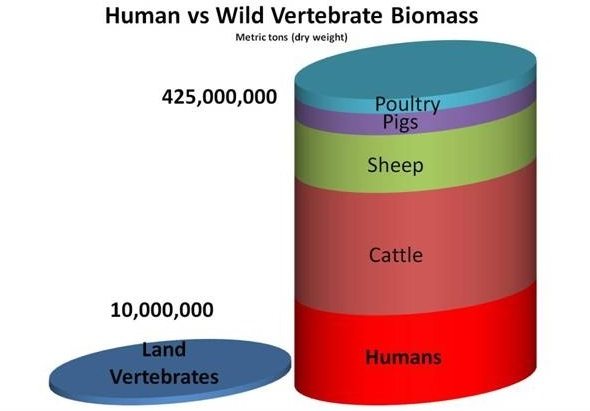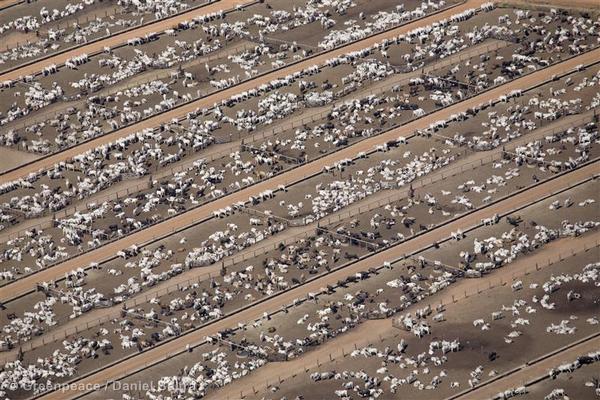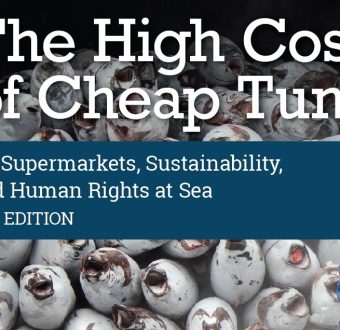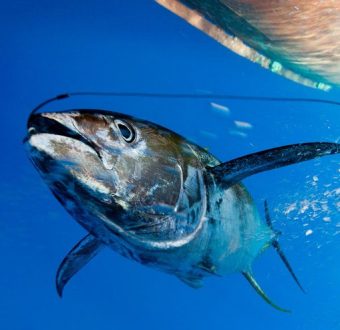This is a guest post from our friends at the Center for Biological Diversity
Our planet has a livestock problem.
Consider the sheer weight of the industry: In the last 100 years, the biomass of cattle across the globe has increased by almost 250 percent. Compare that to elephants, whose biomass declined by 90 percent.
In fact, if all wild terrestrial mammals climbed on the biomass scale together, the worlds cattle would still outweigh them by 16 times.
Instead of going on a diet to lose some of that livestock weight, the global taste for meat has only grown. Meat production tripled between 1980 and 2010 and will likely double again by 2020. And it will only get worse as human population pushes toward 10 billion by mid-century.
Thats why the Center for Biological Diversity just launched the Earth-friendly Diet campaign. Were asking people who care about wildlife and the planet to join together and pledge to eat less meat.
The biomass numbers are eye-opening, but what all those cows, sheep, pigs and other livestock mean for the environment and other species is far more shocking. According to the United Nations, livestock production is responsible for more global greenhouse gas emissions than cars, trains, and airplanes combined.
In a 2009 report, Slaughtering the Amazon, Greenpeace highlighted the extent of the cattle industrys impact on Amazon deforestation an average of one acre every 8 seconds destroyed for grazing or feed crops. The loss of one of the most biodiverse regions in the world is devastating.
But you dont have to travel far to see the toll of cattle on the landscape and wildlife. In the western United States, cattle grazing causes more ecological damage and has contributed to the decline of more endangered species than any other form of extractive land use. At least 175 endangered species that live on federal lands are threatened by livestock, including keystone species like wolves, which were already once driven to the brink of extinction by the industry. And throughout the country, more than 35,000 miles of rivers home to fish, amphibians, and birds have been polluted by factory farms.
From climate change to land degradation, pollution to water use, habitat loss to fossil fuel consumption, the meat industry has a ravenous appetite for resources and destruction.
And Americans are hungry for what theyre selling we eat more meat per person in this country than almost anyone else in the world. Our planet and our country in particular has a livestock problem, and its up to us to break the habit. Every day we make choices about what to eat. Its time we choose to take extinction off our plates.
As someone who cares about the environment, you probably think a lot about food choices, such as avoiding palm oil linked to deforestation and choosing organic. Those are no doubt important.But one of the biggest, most all-around effective things you can do for the planet is to reduce your meat consumption.
Researchers from Carnegie Mellon University found that shifting your diet just one day a week from eating meat to plant-based alternatives saves more greenhouse gases than eating an entirely locally sourced diet.
If youre already limiting your meat consumption, or even if youve already cut meat from your diet, you can still help. With 7 billion people, 21 billion cattle, and countless other livestock in the world, we need to reach as many people as possible to join the movement, take the pledge and spread the word. When you leave more room for veggies on your plate, you leave more room for wildlife on the planet. Learn more and take the pledge at www.TakeExtinctionOffYourPlate.com.





